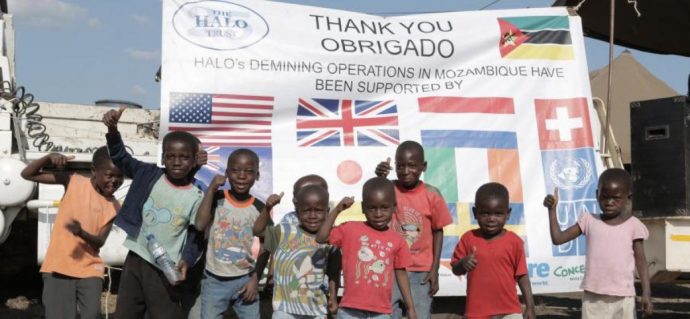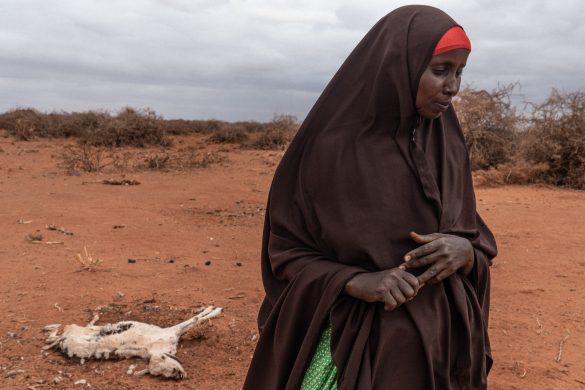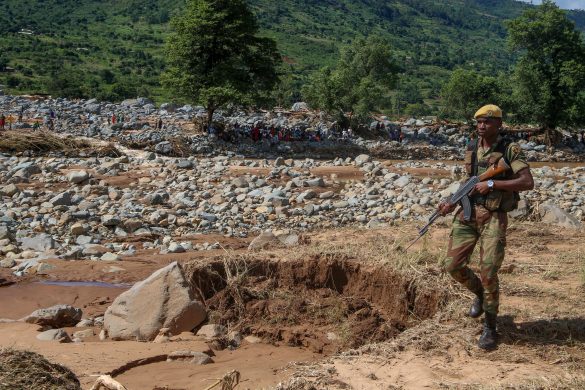The government of Mozambique will officially declare the country free of landmines today, shortly after the British mine clearance charity the HALO Trust confirmed it had destroyed the last known mine on its territory.
So says the organisation in a press statement on Thursday.
Mozambique was one of the most mined countries in the world. Before HALO began its pioneering clearance programme in 1993, landmines caused hundreds of accidents a year, including fatalities and amputations.
Ridding Mozambique of landmines brings enormous benefits to its 26 million citizens. Communities can now cultivate crops and graze livestock safely. Mine clearance has helped the country develop its infrastructure, access vital commodities such as gas and coal, increase tourism and attract international investment. Mozambique’s GDP has grown 7% a year since HALO began demining and it is now one of the world’s fastest growing economies.
More than 1,600 Mozambican men and women have been employed by HALO over the last two decades. Utilising both manual and mechanical demining methods, they have made over 17 million square metres of land safe. Overall, HALO personnel cleared more than 171,000 landmines, accounting for about 80% of the total destroyed.
James Cowan, CEO of The HALO Trust said:
‘Mozambique is a compelling example of how dealing with the deadly debris of war systematically and in partnership with government, local people and donors can bring stability, recovery and growth to countries ravaged by war. HALO is proud to have been part of such a powerful legacy and hopes today’s news provides the momentum to strive for a mine free world by 2025.’
Alberto Augusto, Director of the Mozambique Institute for Demining said:
‘This is a proud day for Mozambique. Ridding our country of landmines was tremendously difficult, but the bravery and determination of our demining teams proves to the world that it is possible for countries to become mine free. We are truly grateful to those who risked their lives in order to protect those of our children and future Mozambicans.’















